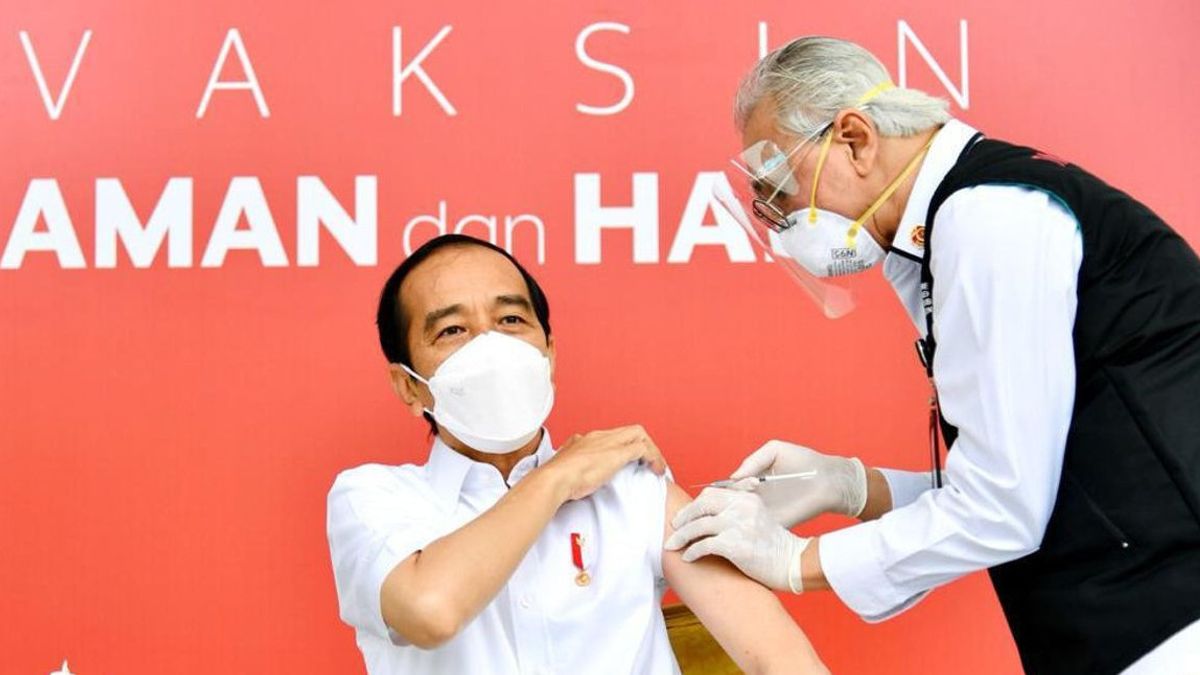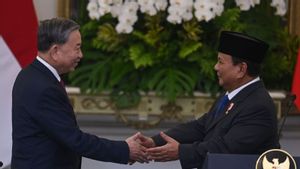JAKARTA - The COVID-19 vaccination program, which started on Wednesday, January 13, brought great hopes for an immediate exit from the pandemic, including the financial services sector.
The Financial Services Authority (OJK) in a press release entitled "Financial Services Industry Annual Meeting 2021" hopes that this national strategic program can accelerate national economic recovery in order to support the various stimuli that have been issued.
The institution led by Wimboh Santoso said that the Covid 19 pandemic was a major storm that brought severe shocks to the global economy and financial markets. The national economy also contracted quite deeply, thus suppressing the performance of the real sector and reducing people's income.
"Effective and targeted policies, such as vaccination, are needed so that financial system stability is well maintained," said Wimboh, Friday, January 16.
OJK sees that the national economy will still face various challenges in 2021, including efforts to create market demand, accelerate the handling of the COVID-19 pandemic, and the momentum of the need for digitalization to support economic activity.
In addition, structurally, the financial services industry must resolve various things including limited competitiveness and economies of scale, shallow financial markets, the need for accelerated digital transformation in the financial services sector, the sub-optimal development of the Islamic Financial Industry and inequality in Literacy and Inclusion. Finance.
The stock market is positiveAt the close of the inaugural vaccination week, the Indonesia Stock Exchange (BE) reported that during the period 11-15 January 2021, the capital market recorded the movement of trading data which closed in the positive zone. The highest increase was in the average transaction volume of 48.77 percent to 32.357 billion shares from 21.750 billion shares last week.
Then the average daily transaction value during the week increased by 33.06 percent or to Rp. 25.151 trillion from Rp. 18.902 trillion at the close of last week.
Not only that, the average daily frequency data during the week also increased by 25.83 percent to 1,870,589 transactions compared to 1,486,659 transactions in the previous week.
The Composite Stock Price Index (JCI) also increased 1.85 percent and was at the level of 6,373,412 from 6,257,835 at last week's closing.
During the week, the stock exchange market capitalization also closed up 1.77 percent or Rp7,430.367 trillion from Rp7,301.016 trillion in the previous week. Foreign investors today recorded a net purchase value of Rp.49.80 billion, while throughout 2021, they recorded a net purchase of Rp.10.570 trillion.
Bank Indonesia is accommodatingBank Indonesia supports various advanced policies to build optimism for national economic recovery, such as through opening up productive and safe economic sectors for Covid-19, accelerating fiscal stimulus, channeling bank credit from the demand and supply side, continuing monetary and macroprudential stimulus, and accelerating digitalization. economics and finance.
The monetary authority has already taken steps by deciding to maintain the BI 7-Day Reverizxo Repo Rate (BI7DRR) at 3.75%, the Deposit Facility rate at 3.00%, and the Lending Facility rate at 4.50% based on Meeting of the Board of Governors (RDG) of Bank Indonesia on 16-17 December 2020.
Going forward, it is said that Bank Indonesia will continue to direct all policy instruments to support national economic recovery, while maintaining control of inflation and maintaining stability of the Rupiah exchange rate, as well as supporting financial system stability.
Close policy coordination with the Government and the Financial System Stability Committee (KSSK) will continue to be strengthened to maintain macroeconomic and financial system stability and accelerate national economic recovery.
The focus of policy coordination is directed at addressing supply and demand side problems in channeling credit / financing from banks to the business world in priority sectors that support economic growth in the context of national economic recovery.
The English, Chinese, Japanese, Arabic, and French versions are automatically generated by the AI. So there may still be inaccuracies in translating, please always see Indonesian as our main language. (system supported by DigitalSiber.id)













